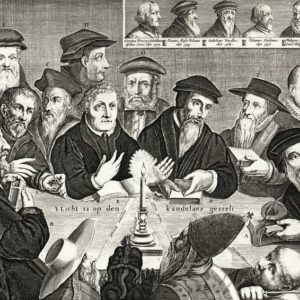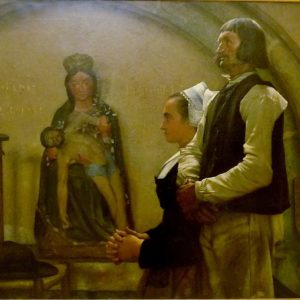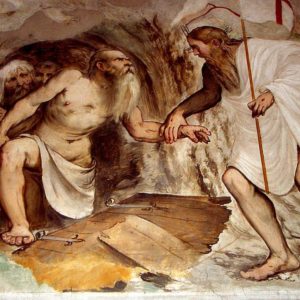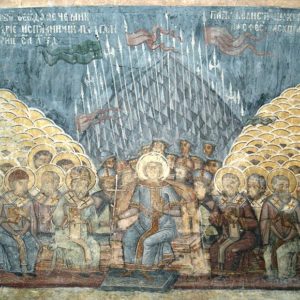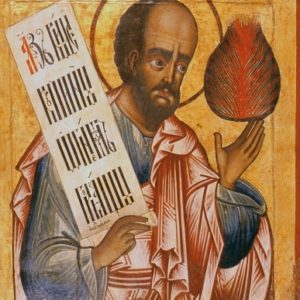Historically, two doctrines more-or-less defined Protestant theology: sola fide (justification and salvation are “by faith alone”) and sola Scriptura (doctrines are established “by Scripture alone”). But do Protestants today even believe in these doctrines? A fascinating pair of Pew surveys, marking the 500th anniversary of the Reformation, decided to find out by surveying large numbers of Protestants in the U.S. and in eight different Western European countries. The results were fascinating, and we Catholics ought to be paying close attention.
Tag: apologetics
Does Prayer Change Things?
Does prayer change anything? And if so, is that a good thing? There are three major objections to consider:
First, that due to predestination, everything is set in place, and our prayers can’t change anything.
Second, that “prayer doesn’t change things; it changes me.” So the only one changed by prayer is me. After all, God is perfect and changeless.
Third, due to God’s omniscience and omnipotence (that is, that He knows everything and is all-powerful), His plan is perfect, so our prayers shouldn’t do anything. After all, we’re not going to tell God anything that He doesn’t already know, and we’re not going to have a better plan than the one He already has, right?
Why is Christ the “Last Adam”?
St. Paul refers to Jesus as “the last Adam” (1 Cor. 15:45). What are the two ways in which we can we speak of Jesus as the new (or last) Adam? And who is His Eve?
Are Exorcists Biblical? (And if So, Why Don’t Protestants Have Them?)
Scripture is clear about the reality of demons, and about Jesus and the Apostles driving out demons. So why do Catholics have exorcists, and the vast majority of Protestants don’t? And what does Scripture have to say about the reality of demons, the distinction between evangelization and exorcism, and the ability of individuals to drive demons out?
A Helpful Question for Our Protestant Friends
Hint: the critical question is, “Were any of the groups that broke off from the visible Church in the first millennium correct to do so?” Here’s why.
Is it Blasphemy to Speak Against the Saints or the Church?
The Catholic Church claims that it is blasphemous to use the name of the Virgin Mary or the Saints in vain, and Protestants are understandably uneasy about this. So is the Catholic Church right? Or is this claim itself blasphemy?
The Lost Verses of “O Salutaris Hostia”
Many devout Catholics are familiar with the hymn O Salutaris Hostia, but did you know that it’s part of a larger hymn called Verbum Supernum Prodiens, written by St. Thomas Aquinas for the Feast of Corpus Christi? It’s theologically rich and well worth reading, praying, and listening to.
The Historical Case for the Resurrection
As we celebrate the Resurrection of Jesus Christ this octave, let’s talk about the case against the Resurrection. One of the most common reactions to the Resurrection is simply that the idea is ridiculous. But in fact, there’s strong HISTORICAL evidence for the truth of the Resurrection that has to be grappled with, regardless of your religious persuasion. Here’s a little bit of it.
Herod and Pilate—on Trial
It’s no coincidence that Herod’s life and Pilate’s are also intimately bound up with the other’s. St. Luke mentions that, after the trial of Jesus, “Herod and Pilate became friends with each other that very day, for before this they had been at enmity with each other” (Luke 23:12). And in each case, we might say that it’s really Pilate and Herod who get put on trial. Why? Because these two allegedly powerful men each have before them a man they personally know to be innocent, a man that they want not to execute. Whether they know it or not, this is the most important moment in each man’s life, the moment for which he will be remembered for all of history.
Why is Sin Such Damned Fun?
We’re about to enter into Good Friday, the day on which Jesus died for our sins. So what’s the deal with sin? It’s very easy to think of sin as fun, and virtue as sort of missing out on the fun for the sake of some future reward: a sort of Mardi Gras v. Lent contrast. Why IS such (literally) damned fun? And how do we respond to the charge that we’re just anti-fun?
